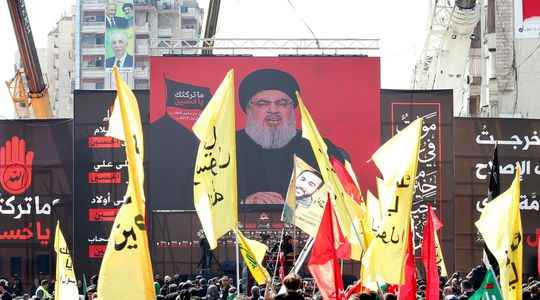The biggest surprise came from the South. In a region historically dominated by the Shiite tandem Hezbollah-Amal, the protest forces made a remarkable breakthrough by obtaining two seats in the legislative elections which took place on Sunday May 15 in Lebanon. In the midst of a political and economic slump for more than two years, the Lebanese were called to the polls for the first time since the uprising of October 17, 2019 and the double explosion at the port of Beirut in August 2020.
Faced with the resilience of the traditional parties in power for thirty years, and their ability to bring out the community map and to perpetuate the patronage tradition, the opposition had little hope. The results nevertheless consecrated him as one of the big winners of the election by obtaining 13 seats (out of 128) against only one four years earlier, distributed in 7 of the 15 constituencies in the country.
The new Lebanese Parliament remains mainly formed by parties and traditional figures, but several notable developments are to be noted. The first is that Hezbollah and its allies lost their majority by obtaining around 60 deputies. The pro-Iranian party currently feels cornered both domestically and regionally and its leader, Hassan Nasrallah, had repeatedly insisted on the importance, in this context, of preserving a majority in the Assembly. Reacting to the results, one of the party’s most important MPs, Mohammad Raad, set the tone for the new political phase that is now beginning: “Don’t fan the flames of civil war”,
The Shiite party also circulated on Tuesday an infographic presenting the distribution of forces within the Parliament in which it would have, according to it, the majority, by classifying all the figures who are not fundamentally hostile to it in its camp.
Structural reforms
If Hezbollah is on the defensive, it is because the Lebanese Forces, supported by Saudi Arabia, are the other big winners in the election. Samir Geagea’s party went from 15 to 19 deputies and thus became the most important on the Christian scene ahead of the Courant Patriotique Libre (CPL) of President Michel Aoun and his son-in-law Gebran Bassil. The FL took advantage of the growing hostility of the Christian street towards Hezbollah and imposed themselves in the eyes of part of this community as the only ones able to face it.
The elections thus mark the return of a strong polarization, without anyone having the majority within the Assembly, and the beginning of a new political game which raises many questions. How can we reconcile, for example, the desire of several parties to play the opposition card to the full and the urgency of implementing reforms that require finding compromises between the main players? How will the alliances be made and undone between the deputies of the protest and the traditional parties according to the subjects?
The country of the Cedars is beginning this new stage when it has pledged to the IMF to launch a series of structural reforms in exchange for which it will be able to obtain 3 billion dollars, a sum which it absolutely needs to revive its economy.
Another major deadline will also occur in a few months with the election of the next President of the Republic. The new political landscape raises fears of the return of blockages throughout this period. The status quo may be questioned, but the complexity of Lebanese politics could quickly reassert itself.
